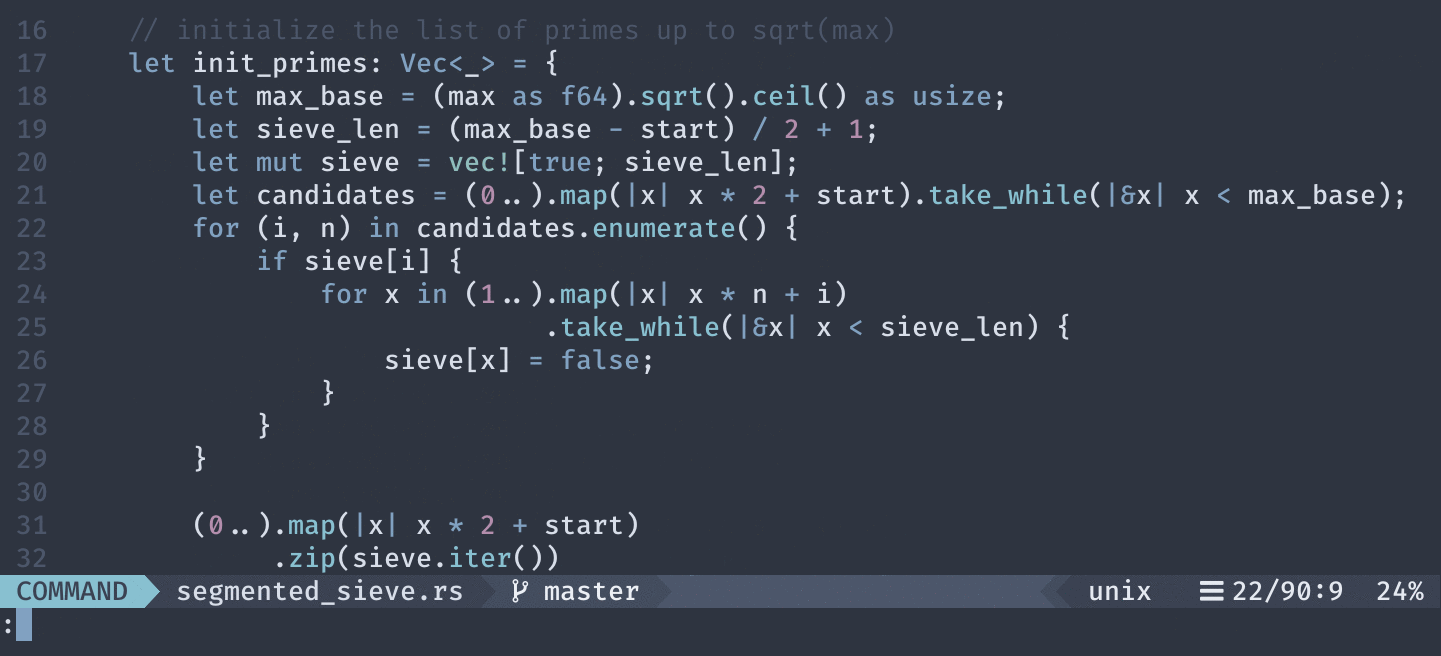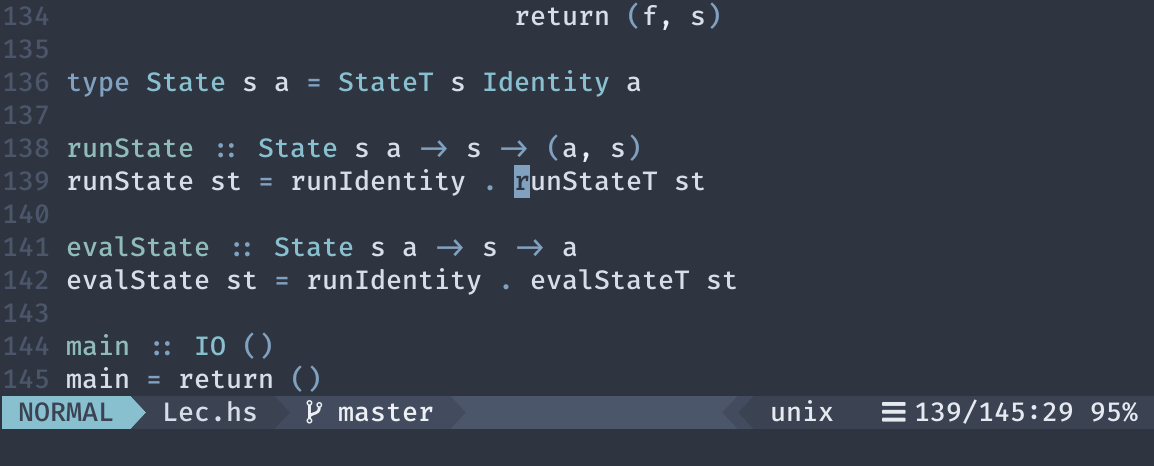A configurable plugin to execute external commands asynchronously. This is a rewrite of an unpublished plugin I wrote before async was around.
Neovim >= 0.2 for most of the stuff to work. Version 0.4 or above
recommended.
Optional: floaterm. If floaterm is detected, Vimdo will create new floaterm windows for terminal jobs instead of managing them internally.
Add the following line to your init.vim
Plug 'macthecadillac/vimdo'The following commands are available:
Vimdo: Vimdo {cmd} where cmd is the sub-command you defined (see the
section below). This will execute the command you configured.
VimdoList: List all the defined sub-commands available for the current file
type
VimdoProcs: List all background processes launched through Vimdo
(those that run not in the terminal but in the background)
VimdoStop: Terminate process with the provided process number. VimdoStop {#} where # is the process number listed by VimdoListProcs.
VimdoFloats: List all the float terminals opened by Vimdo.
VimdoCloseFloat: Close the floating window with the provided window ID.
VimdoCloseFloat {#} where # is the window ID listed by VimdoFloats.
VimdoBang: VimdoBang {cmd} where cmd is a shell command. This is an
asynchronous version of the usual vim bang command. This follows the global
configuration.
VimdoBangS: VimdoBangS {cmd} where cmd is a shell command. This is the
same as VimdoBang with the exception that it prints the stdout output to a
new split.
VimdoBangT: VimdoBangT {cmd} where cmd is a shell command. This is the
same as VimdoBang with the exception that it is executed in a floating
terminal.
Configurations can be global or local. Global configurations reside in your
global configuration (usually in init.vim) whereas local configurations live
in .vimdo.vim in your local directory (either in the same folder as the file in
buffer or in the root of the git repository). Local configurations, if found,
always have precedence over global configurations.
All hooks reside in g:vimdo#cmds. It is a dictionary that maps
Vimdo sub-commands to shell commands. The dictionary must contain keys (as
string's) that are vim filetype's. The value of the each entry is another
dictionary that must contain this entry:
cmd:stringThe command to be invoked
Aside from cmd, you can include any valid configuration keys in the dictionary
and these will have precedence over the global/file type configurations.
One extra key that is not available as a configuration key is callback:
callback:stringName of the callback function. The callback function takes a list of strings as its only argument.
Instead of being specific file types, the first level keys could optionally be a
wildcard, in this case * that serves as a catch-all, and all its commands will
be available for all file types. Notice that file type specific commands will
override catch-all commands if conflicts arise.
Example:
let g:vimdo#cmds = {
\ '*': {
\ 'update-ctags': {
\ 'cmd': 'ctags -R -h --exclude={.git}',
\ 'with_filename': 0,
\ },
\ },
\ 'rust': {
\ 'run': {'cmd': 'cargo run', 'with_filename': 0, 'in_term': 1},
\ 'release-build': {
\ 'cmd': 'cargo build --release',
\ 'in_term': 1
\ },
\ },
\ 'haskell': {
\ 'type': {
\ 'cmd': ['stack', 'exec', 'hhpc', '--', 'type',
\ 'vimdo#util#filename', 'vimdo#util#line', 'vimdo#util#col'],
\ 'show_stdout_in_float': 1,
\ 'in_term': 0,
\ 'callback': 'ProcessTypeResults',
\ }
\ },
\ }
function! ProcessTypeResults(text)
let l:o = ['']
let l:s = 100000
let l:col = col('.')
for l:line in a:text
let l:output = split(l:line, '"')
if l:output !=# []
let l:num = split(l:output[0])
" if start and end aren't on the same line then it is not just for the
" word the cursor is sitting on
if l:num[0] ==# l:num[2]
let l:d1 = abs(l:num[1] - l:col)
let l:d2 = abs(l:num[3] - l:col)
let l:s1 = l:d1 + l:d2
if l:s1 < l:s
let l:o = [l:output[1]]
let l:s = l:s1
endif
endif
endif
endfor
return l:o
endfunctionFor further configuration options, please refer to the documentation.
MIT

